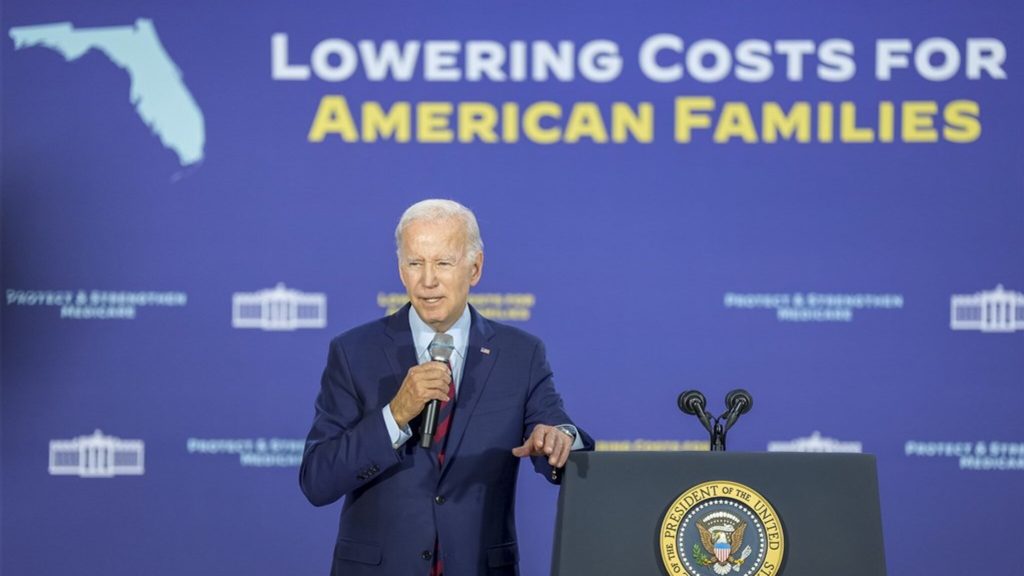A ‘Existential Challenge’ For Europe’s economy. This is what European Commissioner Thierry Breton (Internal Market) calls a package of US subsidies and tax measures, which will take effect on January 1.
While it may sound a bit bleak, he’s not the only European politician concerned about the so-called Inflationary Reduction Act (IRA), which US President Joe Biden signed into law in mid-August.
$369 billion
The IRA is a federal pool of grants and tax credits totaling $369 billion for American businesses and consumers. The name of the law can be a bit confusing. Yes, the law is intended to curb US inflation and, among other things, lower health and energy costs for Americans, but at the same time it also contains substantial corporate subsidies and tax cuts on clean energy and technology.
But the IRA is causing tensions within the EU. Politicians and officials fear that attractive US subsidies will be irresistible to investors and large European industrial firms, particularly electric car makers and hydrogen producers. “This is a very, very dangerous path to starting trade wars,” protested an EU diplomat News platform politics.
Energy crisis also plays a role. European companies are left with sky-high energy and fuel bills at home as a result of the Russian invasion of Ukraine. In America, energy is very cheap, which also makes America very attractive at this time – the fear in Brussels.
Buy American
The new US industrial policy strongly reminds critics of the ‘Buy American’ Act of the 1930s. Even then, in the midst of a major economic recession, the US government encouraged domestic purchases with protectionist legislation. The ultimate goal is to buy American products cheaper.
It inspired other presidents, including Biden’s predecessors Donald Trump (with his 2017 Buy American and Hire American mandate) and Barack Obama, who prioritized private enterprise with his 2009 ‘American Recovery and Reinvestment Act’. Crisis.
“There has always been some form of protectionism in both the US and the EU,” says Philip Mere, an analyst who follows the US economy for Rabobank. “Governments try to hide such policies while pretending to support free trade. But politicians do it openly these days because you score with your voters. Even Biden’s Democrats.”
‘Powerful Response’
Meanwhile, rumblings are being made in Brussels to come up with a similar subsidy package. For example, France is proposing to introduce a ‘Buying European Act’, which would encourage European consumers to buy goods locally and lead to billions in European subsidies.
The other decisive superpower in the EU, the usually liberal Germany, seems more and more in favor of it after earlier reluctance. As in France and Italy, the IRA directly affected the German car industry.
Today, German Chancellor Olaf Scholz and French Prime Minister Elisabeth Borne are discussing the issue in Berlin. Ahead of the meeting, Germany’s Minister of Economic Affairs Robert Habeck gave the first step.
The EU must come up with a ‘strong response’ to the US law. Habeck said For the German business newspaper Handelsblatt. He called the US aid package “excessive” and said he feared it would “suck investment out of Europe”.
Bad for the Netherlands
But the Netherlands wants to prevent that. As a small open economy, the Netherlands is highly dependent on international free trade, preferably as cheaply as possible.
Foreign Trade Minister Liesje Schreinemachers said she was concerned about the IRA and the potential impact on the European economy was ‘huge’. Screenmakers, today that Meeting in Brussels Along with his fellow trade ministers, he hopes to find a solution soon to prevent trade disputes.
“On balance, it’s bad for everyone when economies hide behind trade barriers,” says analyst Mary. “From a global perspective, it’s not optimal because it limits economic growth. But if other countries start doing it, it doesn’t make sense to do nothing yourself.”
Low bias
And there are many other reasons why protectionism is widespread. The coronavirus pandemic has made European companies painfully aware of how much they depend on foreign countries for their supply chains. This is what EU member states achieved this week A contract It will invest a combined 45 billion euros in its own chip industry. Because of the war in Ukraine, energy security is suddenly at the top of the agenda.
Mary: “With the benefit of international free trade, we assume that countries will always distribute goods to each other. Now that Russia has turned off the gas pipeline, Europe knows that certainty is gone. Then you have a very different opinion. Europe slowly wakes up and needs some catching up.”

“Passionate analyst. Thinker. Devoted twitter evangelist. Wannabe music specialist.”







More Stories
Cooperation between the US and China ensures more stable corporate finance – FM.nl
New US peace proposal for Gaza war ‘may be too smart for either side to say no’
Bitcoin weathers bankruptcy storm in US